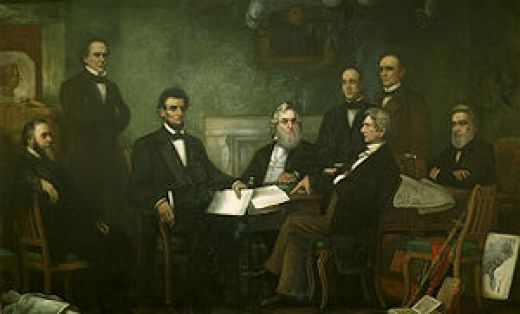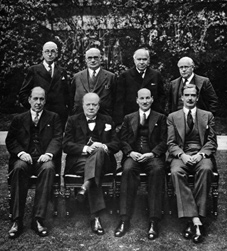When you’re the leader for any undertaking, assembling a team under you is an especially important job. The quality of the people who have working with you and for you will significantly affect the outcome of your task at hand. And not just the quality of the team members, but their attitudes, beliefs, characters, and worldviews will also make a huge impact on the task.
I think there is oftentimes a great temptation for a new leader to stack his team with people who are his friends and who share all of his preconceived opinions. Indeed, it is a great reassurance to know that you have someone who you can undoubtedly trust and to know that there is complete consensus on a strategy and plan for a way forward. This feeling of confidence and security is nice boost to the self-esteem.
But the problem with such teams is that over time they suffer from groupthink, which inhibits progress by preventing, even discouraging, adaptation to evolving circumstances. Caught up in the flatteries of his team and convinced that his task is on the right course, the leader is obtuse to new realities affecting the task. A sudden change in public opinion, consumer tastes, developments ‘on-the-ground’, or underlying assumptions can have a dramatic impact on the any task. It is therefore essential to adapt to such swift changes in environment to maintain competitiveness.
One way groupthink is avoided is by creating a diverse team – putting into place people who have very different views, experiences, assumptions, and even people who don’t necessarily get along. However, it must be noted, that despite your new team members’ differences, they must fully agree on the most essential and fundamental issues at hand. Management consultant and scholar Peter Drucker used to paraphrase Aristotle: In essentials unity, in action freedom, and in all things trust. Trust requires that dissent come out in the open. An atmosphere that encourages debate and dissent provokes a kind of creative tension – or constructive dissent as Drucker calls it – where all sides of a problem are assessed and every course of action analyzed.

(First Reading of the Emancipation Proclamation of President Lincoln by Francis Bicknell c. 1864 – Source: Google Images)
 (Winston Churchill and his cabinet c. 1940 – Source: Google Images)
(Winston Churchill and his cabinet c. 1940 – Source: Google Images)
Two of the greatest statesmen in world history – Abraham Lincoln and Winston Churchill – assuming power during times of grave existential crises, deliberately assembled a team of rivals, as Doris Kearns Goodwin put it. They appointed rivals who represented different factions of the government, whether ideologically or geographically, thereby creating an atmosphere that would naturally be conducive to dissent. Every member of Lincoln and Churchill‘s respective cabinets, upon their appointment or shortly thereafter, agreed upon the fundamental and essential policies of preserving the Union and completely destroying Nazi Germany. But their cabinet members rigorously argued and debated the details of all strategic and operational matters. These appointments were also symbolic and represented the unity of the country. By including members of the Labour and Liberal parties, as well as officers from the late conservative government, Winston Churchill crafted a cabinet that represented the unity of the country. Lincoln, on the other hand, asked representatives from each quarter of the country and on each side of the political spectrum from within the Republican Party to join his cabinet. He had asked in fact, a few Democrats to join his cabinet, but they declined out of party loyalty.
I believe one of George W. Bush’s biggest initial mistakes was to stack his cabinet with old friends who worked closely with father. Dick Cheney was George H.W. Bush’s Secretary of Defense, Colin Powell was his Chairman of the Joint Chief of Staff, and Donald Rumsfeld was Gerald Ford’s Secretary of Defense and also had much involvement in the Middle East with the Reagan and H.W. Bush Administrations. He sacrificed fresh perspectives and dissenting opinions for loyalty and reassurance of trust (which I believe is a false reassurance).
Comments on this entry are closed.